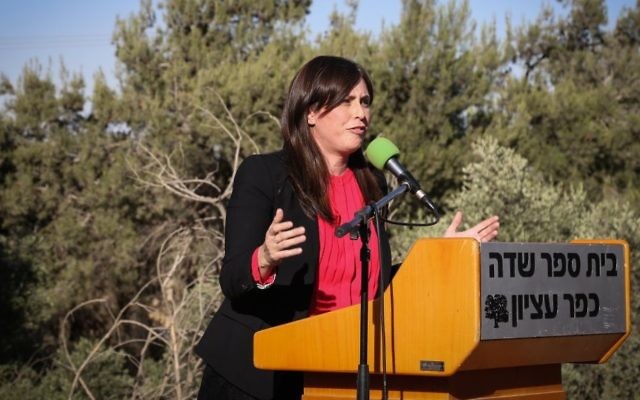A United Nations blacklist of companies operating in the West Bank, East Jerusalem and the Golan Heights includes some of the biggest firms in Israeli industry as well as some household names in the US.
Among those on the UN Human Rights Council list are Coca-Cola, TripAdvisor, Airbnb, and Caterpillar, Channel 2 reported on Tuesday.
The US has threatened to withdraw from the international forum if the list is published.
Israeli companies on list reportedly include pharmaceutical giant Teva, the national phone company Bezeq, bus company Egged, the national water company Mekorot and the country’s two largest banks, Hapoalim and Leumi.
Some of the international companies — namely Airbnb, Caterpillar, and TripAdvisor, as well as Priceline — were previously reported by The Washington Post to be on the list.
The list was recently delivered to the Foreign Ministry, the report said.
Deputy Foreign Minister Tzipi Hotovely, on a working visit to US, said in a statement that “the UN is playing with fire.”
“The more it acts against Israel, the more it will lose its budget. These activities can harm the UN like a boomerang. Israel is working with the US to put together an action plan to end the UN bias against Israel. The UN Human Rights Council is the most hypocritical arena, that is where the revolution should start,” she said.
UN human rights chief Zeid Ra’ad al-Hussein intends to publish the list in December, despite opposition from the US and Israel, according to the report.
Last year, the UN body voted to compile a database of all business enterprises that have enabled or profited from the growth of Israeli settlements in areas Palestinians see as part of their future state. The resolution passed with 32 nations voting in favor and 15 abstentions.
The proposal, put forward by the Palestinian Authority and Arab states in 2016, included a condemnation of settlements and called on companies not to do business with Israeli settlements.
In August US State Department spokeswoman Heather Nauert said a joint US-Israel effort to stop funding for work related to the database had been unsuccessful.
In June, the US ambassador to the UN, Nikki Haley, condemned the blacklist as “the latest in this long line of shameful actions” taken by the UNHRC. Haley went on to warn that the US could withdraw from the 47-member body unless it reformed, ending its built-in procedural mechanism to condemn Israel, and banning notorious human rights violators from serving on the council.
Since 2007, Israel has been the only country whose alleged human rights abuses are regularly discussed in the framework of a single permanent item on the Human Rights Council’s agenda.

